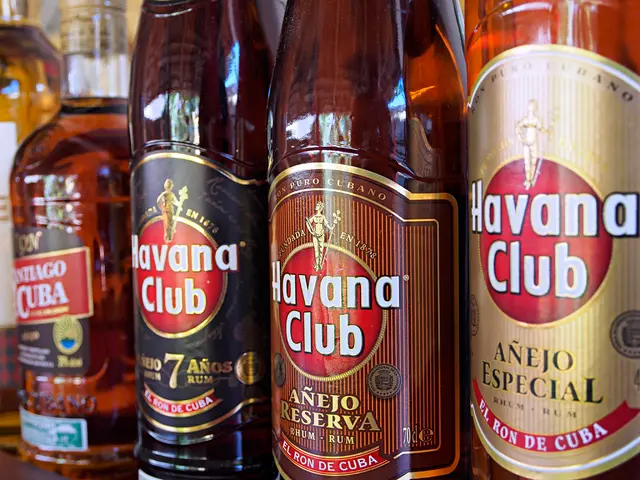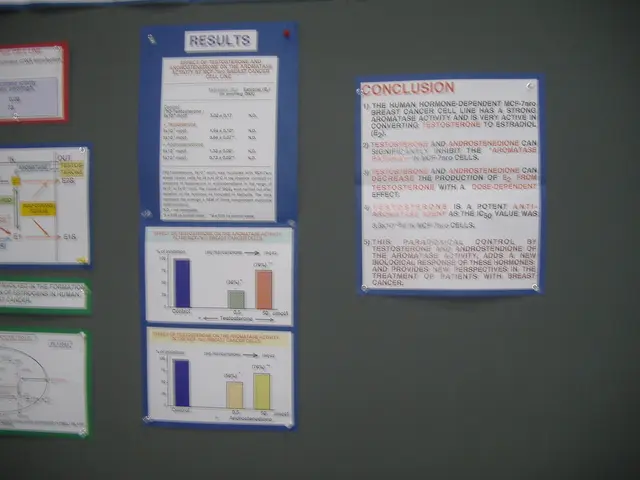Variety in Health: Genetic Factors Underpinning Unusual Resistance to Illness
Health and Genetics: Unraveling the Mysteries of Super-Resistance
A peerless immunity system, an absolute resilience against disease, or simply a lucky streak—does the idea of barely catching a cold while the rest of the world succumbs to the flu intrigue you? The enigma behind such exceptional health is more fascinating and inspiring than you might think.
Nature's Relentless Guard: The Immune System
The human immune system—a marvel of evolution and our permanent protector—is designed to combat foreign invaders, such as viruses and bacteria. Comparable to a vigilant army on constant alert, it quickly mobilizes defenses at the first sight of trouble. However, within this intricate network of soldiers, some individuals demonstrate a heightened resistance due to genetic advantages inherited from generations past.
The Power of Tiny Variants: Genetic Mutations
The white blood cells—your body's minute warriors—form the backbone of the immune system. But not all white blood cells are created equal. Some people have a genetic advantage that yields a greater number or more potent types of these cells. Think of it as a highly-trained security force consisting of kung-fu experts, always alert and twice as effective at defending against attackers.
The Hidden Arsenal: Disease Resistance Genes
Certain genes provide people with a built-in shield against specific diseases. For instance, a mutation in the CCR5 gene confers resistance to HIV in some individuals, offering them leverage while others remain vulnerable. Researchers are continuously uncovering more of these genetic quirks, each one contributing to our understanding of super-resistance.
Inherited Immunity: A Family Reliance
You may have noticed several family members who seem immune to the latest bug. Inherited immunity isn't merely anecdotal. Some families pass on immune-boosting genes, fostering a fortress within their lineage. A strong lineage with a long history of exposure to epidemics often acquires gene variants that aid in fending off those same diseases, ensuring health for generations.
Microbiome Marvels: The Gut and Us
Beneath the surface dwells a thriving microbiome—trillions of microbes living in harmony within our gut. These microbes serve as a second immune system, teaching our bodies to recognize friend from foe. People with diverse and balanced microbiomes are more likely to resist infections due to their resilient garden, fighting off invasions before they spread.
Natural Killer Cells: First Responders on the Front Line
The immune system consists of various players, each essential in its fight against disease. Among the most elite are natural killer (NK) cells, which act as the first line of defense against infected cells and viruses. Some individuals possess NK cells with enhanced activity or efficiency, ready at a moment's notice to combat the spread of infection.
Blood Types' Secret Role
A lesser-known factor in disease resistance is blood type. For example, individuals with type O blood may be less susceptible to severe malaria. While the reasons remain unclear, it is evident that blood type genes subtly influence susceptibility to illness.
A Dynamic Balance: Epigenetics and Immunity
Epigenetics—the study of how genes are turned on or off—shows that our lifestyle and environment can influence both our genetic resistance and susceptibility to diseases. People exposed to particular diets, clean environments, or select infections early in life can develop stronger immune responses, as if training the immune system to become its best self.
Immunity's Precarious Triumph: Autoimmunity and Super-Resistance
There exists an intricate interplay between the genes granting super-resistance and those triggering autoimmune diseases, where the immune system attacks healthy tissue. While offering robust health benefits, these genetic "gifts" carry the risk of chronic illness, as the immune system can sometimes overreact, causing unforeseen damage.
The Global Landscape of Disease Resistance
Super-resistance is not an even distribution across the globe. Different populations showcase unique genetic defenses cultivated in response to the local diseases faced. For instance, sickle cell trait, prevalent in parts of Africa, presents protection against malaria. Likewise, certain Asian populations have developed resistance to SARS-like viruses, highlighting the ingeniousness of evolution and diversity within our species.
Maintaining Balance: A Rendezvous of Nature and Nurture
While genetics play a crucial role in super-resistance, environment and lifestyle are equally essential. Clean air, safe water, good nutrition, and controlled exposure to pathogens help fortify our resistance, reminding us nature and nurture are forever tangled.
Case Studies: Real-Life Realms of Resistance
Occasionally, researchers uncover individuals who seem invincible, people who resist disease despite countless exposures. Their stories are more than just medical curiosities; they illuminate the potential for treatments and prevention strategies that might one day benefit everyone.
Is Super-Resistance an Achievable Goal for All?
The dream of replicating the genetic advantages of the naturally resistant is within reach. Advances in gene editing, personalized medicine, and vaccines are directly inspired by the studies of super-resistant individuals. The future could usher in a new era where everyone may stand a better chance at combating illness.
Boosting Your Internal Battalion: Habits for Good Health
While you cannot change your genes, you can still bolster your defenses. Regular exercise, a healthy diet, stress management, and adequate sleep support the immune system, ensuring you are prepared for anything.
The Future Unveiled: A New Era of Super-Resistance
As research continues to progress, the divide between the super-resistant and the average individual may fade. Innovations in medicine seek to transform the secrets of the resistant into treatments and prevention strategies for all, leveling the playing field and potentially offering everyone a chance to experience greater resilience.
The Immortality of Human Resilience: Hope, Wonder and the Future
The story of super-resistance transcends beyond rare genetic advantages. It represents the timeless adaptability of the human body in the face of adversity, from ancient pandemics to modern health challenges. Whether your resilience stems from extraordinary genetics or determined perseverance, there is a sense of wonder in knowing that our own DNA carries the legacy of countless survivors, standing as a testament to human ingenuity and endurance.
- The enhanced resistance seen in some individuals is due to genetic advantages inherited from generations past, with some people having a genetic advantage that yields a greater number or more potent types of white blood cells, acting like a highly-trained security force.
- Certain genes provide people with a built-in shield against specific diseases, such as a mutation in the CCR5 gene that confers resistance to HIV in some individuals, while blood type can also play a lesser-known role in disease resistance.
- The human immune system's response to pathogens can be influenced by epigenetics, with lifestyle and environment playing a significant role in activating or suppressing genes related to diseases.
- As research advances, the secrets of the super-resistant may help inspire treatments and prevention strategies, potentially allowing everyone to better fight off illness with advances in gene editing, personalized medicine, and vaccines.







